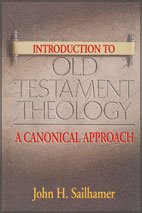Reference: Acts 13:13-41
Preacher: Paul
Occasion: Sermon in the Synagogue at Antioch of Pisidia
Explicit OT References: Ps 2:7 (you are my Son); Is 55:2 (I will grant you the faithful covenant blessings made to David); Ps 16:10 (you will not allow your Holy One to see decay); Hab 1:5 (I am doing a work in your days, a work that you will never believe)
Outcome: Many Jews and God-fearers believe
What is he doing with the OT:
Jesus is the fulfillment of Ps 2, Ps 16, and Isa 55.
The Habakkuk passage was originally God’s answer to Habakkuk’s inquiry as to how long God would continue to put up with unrighteousness in Israel. In Habakkuk it is not a word of judgment against the prophet but one of comfort. Paul adds the words “look you scoffers” and turns them into words of harsh warning.
While this is not actually part of his sermon, Paul afterwards (v. 47) quotes Isa 49:6 (I have appointed you as a light for the Gentiles) in connection with his turning away from the Jews and reaching the nations. The passage in Isaiah is a servant song and the One being the light is the Messiah. Paul, however, applies this servant song to himself and those missionaries with him. They are the appointed lights for the Gentiles
Reference: Acts 17:2-3
Preacher: Paul
Occasion: Thessalonian Synagogue
Explicit OT Reference: none
Outcome: some Jews, many Gentile God-fearers believe
What is he doing with the OT:
Even though Paul's sermon is not recorded, Luke’s phrase “as usual” is noteworthy. It was Paul’s usual practice to go to a synagogue and from the OT to show that the Messiah had to die and be raised from the dead and then to pronounce Jesus as that Messiah.
Reference; Acts 17:22-31
Preacher: Paul
Occasion: The Areopagus Address
Explicit OT Reference: none
Outcome: many ridicule, some believe
Paul does not use the OT in this sermon. He is addressing Gentile philosophers without any Jewish background. As with his other sermons, though, he climaxes with the resurrection.
Reference; Acts 22:1-21
Preacher: Paul
Occasion: Addressing a Jewish mob in Jerusalem that had been beating him until the Romans showed up and rescued him
Explicit OT Reference: none
Outcome: When he gets to the point where Jesus sends him to the Gentiles, the mob again tries to kill him
Paul does not use the OT here. His entire address is his personal testimony of conversion.
Reference: Acts 23:6-10
Preacher: Paul
Occasion: Before the Sanhedrin
Explicit OT Reference: none
Outcome: They try to kill him and the Romans come to his rescue again
Paul plays to the crowd nicely in this short address. Realizing that his audience consists of two hostile groups (Pharisees and Sadducees) he aligns himself fully with the one (Pharisees). He rightly claims that it is because of a resurrection that he is on trial. The Pharisees love that, claim him as their own, and defend him against the Sadducees.
Reference: Acts 26:1-23
Preacher: Paul
Occasion: Before Agrippa
Explicit OT Reference: none
Outcome: Agrippa finds Paul innocent but does not believe
Paul claims to be on trial because he believed in the “hope of the promise made by God to our fathers” (v. 6)—the resurrection from the dead. He further says that he is proclaiming “nothing else that what the prophets and Moses said would take place—that the Messiah must suffer, and that as the first to rise from the dead, He would proclaim light to our people and to the Gentiles” (v. 22-23).
Reference: Acts 28:17-27
Preacher: Paul
Occasion: Before the Jewish leaders in Rome
Explicit OT Reference: Isa 6:9-10
Outcome: After that indictment (Isa 6) the Jews leave him and he turns his attention again to the Gentiles
He again claims to be in chains because of the “hope of Israel” (20). As always, he argues from Moses and the prophets that Jesus is the Messiah. When many Jews don’t believe, he quotes Isa 6 at them.
Conclusion:
Paul's sermons were actually pretty basic: The resurrection proves that Jesus is both Messiah and Lord. If he addressed a Jewish crowd, he would argue from the OT that the Messiah had to suffer and be raised. When he addressed a crowd with no Jewish background he doesn't use the OT at all. Obviously, then, his focus is not that Jesus is the promised Jewish Messiah, but rather Lord and Judge. The central feature in each of his recorded sermons, however, is still the resurrection.
In my next blog I hope to draw some concluding observations from the sermons in Acts.




3 comments:
Your blog keeps getting better and better! Your older articles are not as good as newer ones you have a lot more creativity and originality now keep it up!
Hey there! I'm at work browsing your blog from my new iphone 4! Just wanted to say I love reading your blog and look forward to all your posts! Carry on the great work!
Feel free to visit my blog post: healthy diet plans for women to lose weight
I just like the valuable info you supply on your articles.
I will bookmark your blog and test once more right here regularly.
I'm fairly sure I'll be told many new stuff proper right here!
Good luck for the following!
my web page; chapter 7 bankruptcy florida
Post a Comment